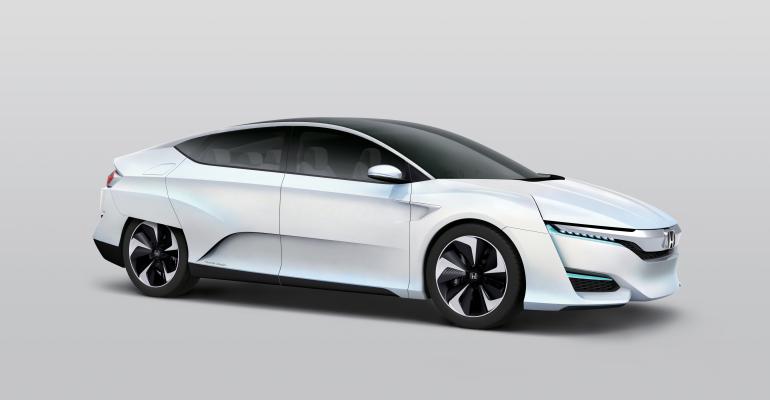TOKYO – The Japanese auto industry will try to maintain a leadership position in environment and safety technologies over the next 10, 20 or even 30-plus years, the chairman of the Japan Automobile Manufacturers Assn. says.
Speaking at a Tokyo news conference Monday, Honda Chairman Fumihiko Ike, who also holds the title of chairman and executive director of JAMA, reports Honda will introduce its FCV fuel-cell vehicle by the end of March, to be followed shortly after by a new fuel-cell model from Nissan. Toyota introduced its Mirai FCV in Japan last December.
Ike says 25% of vehicle sales in Japan are so-called next-generation models: electric vehicles, FCVs, hybrids and clean diesels.
The industry will need to substantially increase that share to 70% if it hopes to achieve future carbon-dioxide emissions targets. Reaching this level will require substantial support from the government and other industries, such as telecommunications and energy, he says.
To date, Japan has introduced 11,000 EV charging stations but only 28 hydrogen fuel stations.
The JAMA executive indicates Volkswagen’s diesel-emissions scandal is not likely to have a significant impact on Japanese automakers.
“Diesels are not popular in Japan,” he says, “and are a minor powertrain option in the U.S.,” where Japanese automakers have substantial operations. “It is mostly a European problem.”
On the eve of the 44th Tokyo auto show, all major Japanese OEMs will be out in force, with leading European brands planning to make a statement. The Americans are a virtual no-show, with Fiat Chrysler Automobiles’ Jeep brand the exception.
In the safety field, Ike says Japan has lowered traffic fatalities for the 14th consecutive year to 4,130 in fiscal 2014, down from 9,073 in 2000. He does not expect to meet the National Police Agency’s 2020 target of 2,500, but still backs the goal.





